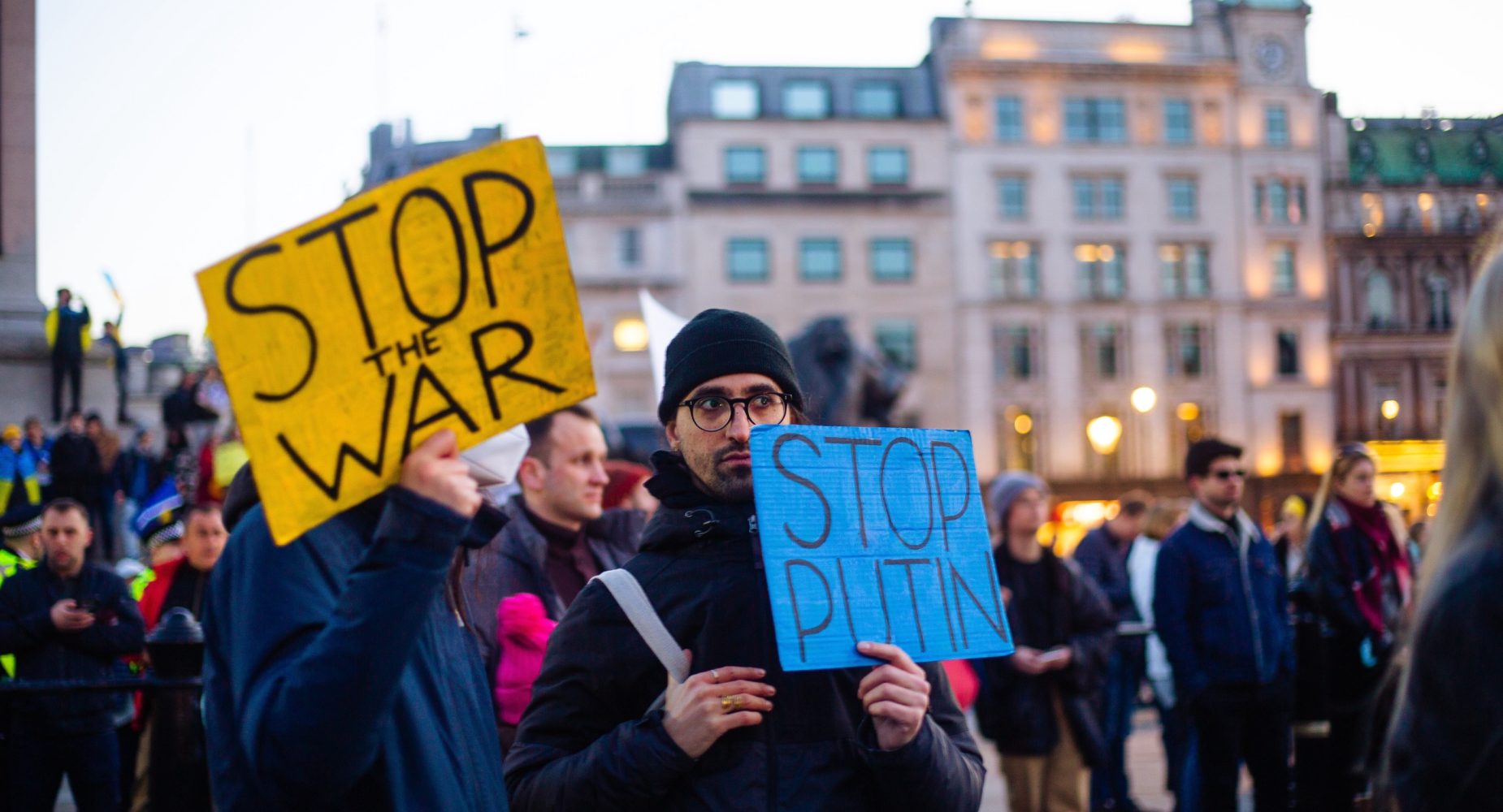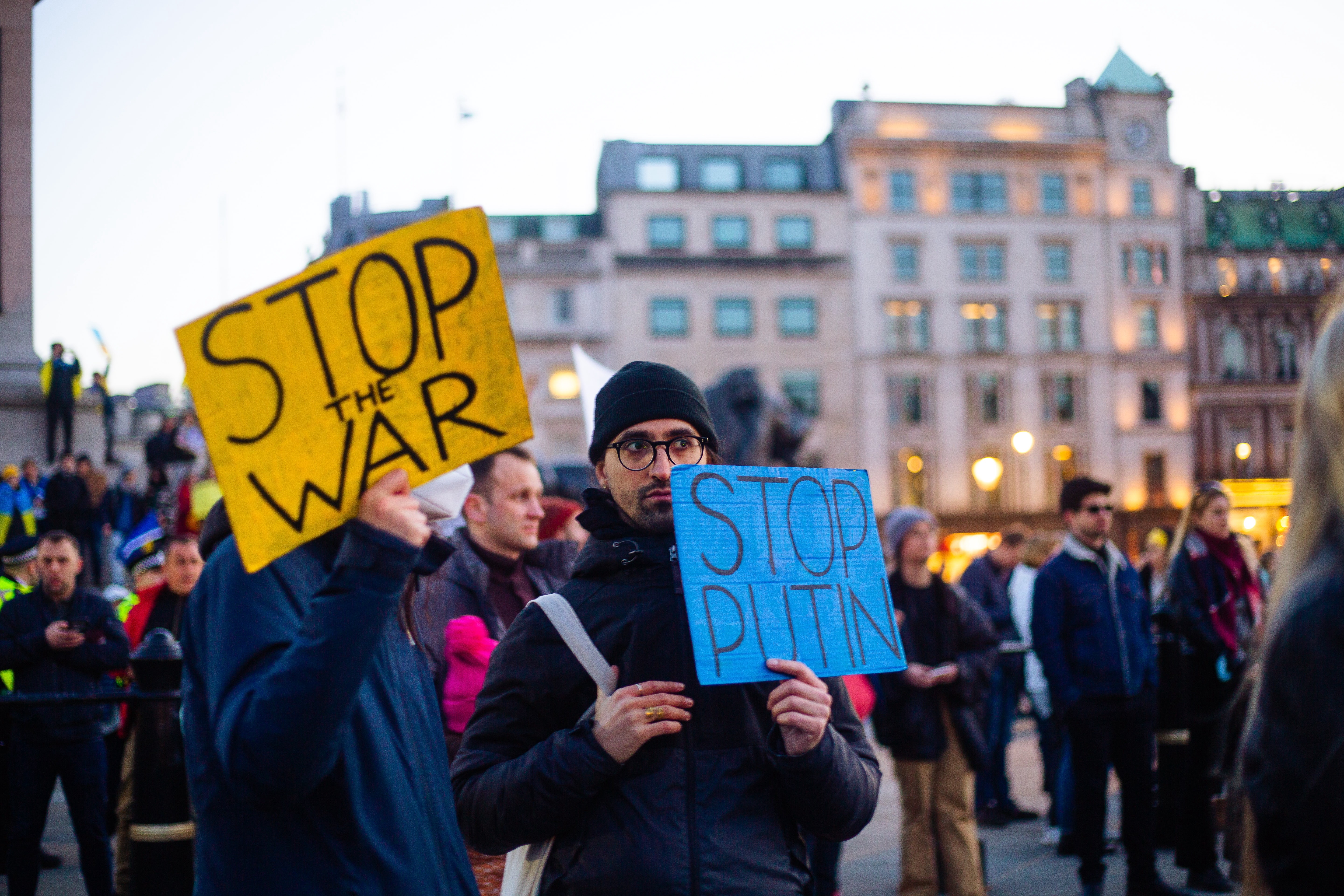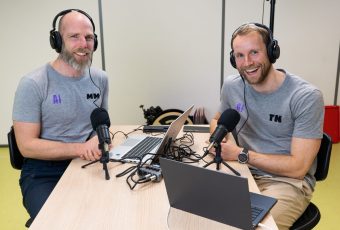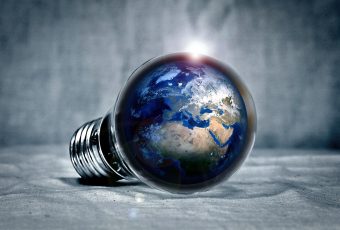
“I wish my parents could come to Arnhem, and be safe with me”
HAN students from Ukraine and Russia on the war, part 1: Kateryna Hrebelnikova
Scroll omlaag voor de Nederlandse versie
War in Europe. It touches us all deeply. But it is much worse for the 800 Ukrainian students in our country who are concerned about family and friends in Ukraine. And many of the 1.300 Russian students are also struggling with the situation. Nearly 70 students from these two countries study at HAN. SAM speaks to some of them. In this first part: Ukrainian Kateryna Hrebelnikova, Communication student at the HAN International School of Business.
“I was on vacation in Austria and was sleeping peacefully when a friend woke me up and said that Russia had invaded Ukraine. I couldn’t believe what she said. I traveled back to Arnhem and stayed here because I can’t do anything in Ukraine anyway.
I am mostly concerned about my parents. They did not flee but stayed in their house. We have lived in Kiev all my life. It wasn’t until I graduated from high school that we moved to a village just outside Kiev. My grandfather and grandmother, who still live in Kiev, fled to my parents a few days after the invasion of Russia, together with a couple of friends and their daughter. My parents hesitated for the first four days, because it was quiet: shall we flee, shall we stay here, shall we flee? And now it’s so dangerous that they don’t dare to go anymore.
Russian tanks are roaming around my parents’ street. They are parked further away. They just drive over cars with the tanks, even with people in them. They don’t care.
“I lived in fear from three in the afternoon until the next morning, for I got no sign of life. Until my mother sent me an email at 5 in the morning”
I try to keep in touch with my parents daily. That went well for the first few days, but became a lot more difficult when the large TV tower in the city was bombed. Suddenly there was no more electricity, so no internet. I then lived in fear from three in the afternoon until the next morning, for I got no sign of life. Until my mother sent me an email at 5 in the morning. It finally worked, thankfully. But we are still unable to call each other. I wish my parents would come to Arnhem, safe with me. But it is too risky to travel through Ukraine now.
The shock of the invasion was enormous. The Russians and Ukrainians know each other so well. We are in fact the same people. We have the same culture, the same customs, the same way of thinking. Many Ukrainians have family and friends living in Russia, and vice versa. And now close to 2 million people are displaced. Most Ukrainians speak Russian, not Ukrainian. We sometimes speak the Ukrainian language, but because of the past, when we were still part of the Soviet Union, we all speak Russian at home. At primary school, children were also always taught the Russian language, in addition to Ukrainian. That came to an end when Russia annexed Crimea in 2014. As a result of this action, our government decided that Russian lessons are no longer allowed at school.
The war is a political game, but the Ukrainian and Russian populations suffer the most. I hear here in the media that the Russians in their country are being cut off from what is happening in Ukraine. That may work for the old people who only watch the state channels, but those who really want to know what’s going on can find the real information via Instagram and Facebook or Google, not the propaganda of the state television. Hence all the protests in many Russian cities by Russians who do not agree with the invasion of their own country.
“I now hear Russians complain that they will not be able to go on holiday to Italy or Paris in the near future. But meanwhile Ukraine is being shot to pieces”
The sanctions that Europe and the rest of the world have put in place do affect people, but for the time being it is not enough. I now hear Russians complain that they will not be able to go on holiday to Italy or Paris in the near future. But meanwhile, Ukraine is being shot to pieces. There are innocent victims. This whole situation makes me feel so indefinable. I don’t wish this on anyone.
Finally, I just want to say how proud I am of our army. No one expected them to last that long. You see a lot of funny movies where Russian tanks stop due to lack of gas. While Russian soldiers search the area for fuel, Ukrainians tow the tanks away with tractors. Fortunately, sometimes there is still something to laugh about.
Nobody knows what is going on in Putin’s head right now. Nobody knows why he wants our land. But I don’t think he will stop when he annexed our country. I’m afraid he will push through to the Baltic states after Ukraine. He just wants more, he wants everything.”
Dutch translation:
“Ik zou willen dat mijn ouders naar Arnhem konden komen, veilig bij mij”
HAN-studenten uit Oekraïne en Rusland over de oorlog, deel 1: Kateryna Hrebelnikova

Oorlog in Europa. Het raakt ons allemaal diep. Véél erger nog is het voor de 800 Oekraïense studenten in ons land die zich zorgen maken om familie en vrienden in Oekraïne. En ook veel van de 1300 Russische studenten worstelen met de situatie. Bij de HAN studeren bijna 70 studenten uit deze twee landen. SAM spreekt enkelen van hen. In dit eerste deel: Oekraïense Kateryna Hrebelnikova, student Communication bij de HAN International School of Business.
“Ik was op vakantie in Oostenrijk en lag vredig te slapen toen een vriendin mij wakker maakte en zei dat Rusland Oekraïne was binnengevallen. Ik kon niet geloven wat ze zei. Ik ben naar Arnhem teruggereisd en hier gebleven, want in Oekraïne kan ik toch niks doen.
Ik zit vooral in angst om mijn ouders. Zij zijn niet gevlucht, maar in hun huis gebleven. We hebben mijn hele leven in Kiev gewoond. Pas toen ik was geslaagd voor de middelbare school zijn we naar een dorp net buiten Kiev verhuisd. Mijn opa en oma, die nog wel in Kiev wonen, zijn enkele dagen na de inval van Rusland toch maar naar mijn ouders gevlucht, samen met een bevriend stel en hun dochter. Mijn ouders hebben de eerste vier dagen getwijfeld, omdat het rustig was: Zullen we vluchten, blijven we hier, zullen we vluchten? En nu is het zo gevaarlijk dat ze niet meer durven te gaan.
Bij mijn ouders in de straat rijden Russische tanks rond. Die staan verderop geparkeerd. Ze rijden met de tanks gewoon over auto’s heen, zelfs waar mensen in zitten. Het interesseert ze niks.
“Ik heb van drie uur ’s middags tot de volgende ochtend in angst geleefd, want ik kreeg maar geen teken van leven. Tot mijn moeder me om 5 uur ‘s morgens een mail stuurde”
Ik probeer dagelijks contact te houden met mijn ouders. Dat ging de eerste dagen goed maar werd opeens een stuk lastiger toen de grote tv-toren werd gebombardeerd. Opeens was er geen elektriciteit meer, dus ook geen internet. Ik heb toen van 3 uur ’s middags tot de volgende ochtend in angst geleefd, want ik kreeg maar geen teken van leven. Tot mijn moeder me om 5 uur ‘s morgens een mail stuurde. Dat lukte uiteindelijk weer, gelukkig. Maar bellen lukt nog steeds niet. Ik zou willen dat ze naar Arnhem kwamen, veilig bij mij. Maar het is te riskant om nu door Oekraïne te reizen.
De schok van de invasie was gigantisch. De Russen en Oekraïners kennen elkaar zo goed. We zijn in feite hetzelfde volk. We hebben dezelfde cultuur, dezelfde gebruiken, dezelfde manier van denken. Veel Oekraïners hebben familie en vrienden in Rusland wonen, en andersom. En nu zijn er bijna 2 miljoen mensen op de vlucht. De meeste Oekraïners spreken Russisch, niet Oekraïens. We spreken ook wel de Oekraïense taal, maar vanwege het verleden, toen we nog deel uitmaakten van de Sovjet-Unie, spreken we thuis allemaal Russisch. Op de basisschool kregen kinderen ook altijd les in de Russische taal, naast de Oekraïense. Daar is een eind aan gekomen toen Rusland in 2014 de Krim annexeerde. Door die actie besloot onze overheid dat er op school geen Russische les meer gegeven mag worden.
De oorlog is een politiek spel maar de Oekraïense en Russische bevolking lijden er het meest onder. Ik hoor hier in de media dat de Russen in hun land worden afgesloten van wat er daadwerkelijk in Oekraïne gebeurt. Dat werkt misschien bij de oude mensen die alleen naar de staatszenders kijken, maar wie echt wil weten wat er speelt, kan via Instagram en Facebook of Google de echte informatie vinden, niet de propaganda van de staatstelevisie. Vandaar ook al die protesten in veel Russische steden van Russen die het niet eens zijn met de invasie van hun eigen land.
“Ik hoor Russen nu klagen dat ze de komende tijd niet op vakantie kunnen naar Italië, of Parijs. Maar intussen wordt ons land helemaal kapotgeschoten”
De sancties die Europa en de rest van de wereld hebben ingesteld raken de mensen wel, maar vooralsnog is het niet genoeg. Ik hoor Russen nu klagen dat ze de komende tijd niet op vakantie kunnen naar Italië, of Parijs. Maar intussen wordt in Oekraïne ons land helemaal kapotgeschoten. Er vallen onschuldige slachtoffers. Deze hele situatie geeft me zo’n onbestemd gevoel. Dit gun ik niemand.
Ik wil tot slot nog even zeggen hoe trots ik ben op ons leger. Niemand had verwacht dat ze zo lang stand zouden houden. Je ziet veel grappige filmpjes waarbij Russische tanks stil staan vanwege gebrek aan benzine. Terwijl de Russische soldaten in de omgeving op zoek gaan naar brandstof slepen Oekraïners de tanks weg met tractoren. Gelukkig valt er soms nog wat te lachen.
Niemand weet wat er op dit moment in het hoofd van Poetin omgaat. Niemand weet waarom hij ons land wil hebben. Maar ik denk niet dat het bij ons land blijft. Ik ben bang dat hij na Oekraïne doorstoot naar de Baltische staten. Hij wil gewoon meer, hij wil alles.”



Alle reacties (0)